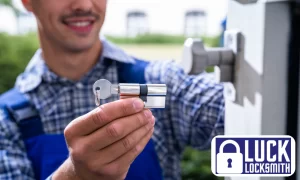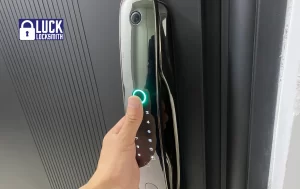Rekeying locks is an important procedure that can improve security for your house or place of business without requiring brand-new locks. Knowing how rekeying works and when to do it can save you time, money, and stress, whether you’ve recently moved into a new house, lost a key, or just wish to limit access.
What Is Rekeying?
Rekeying is the process of making changes to a lock’s inner means so that a new key can open it. This gives you a new key without needing to adjust the entire locking system because the old key will no longer open the lock. It provides a workable answer to a lot of typical security issues.
How Does Rekeying Work?
Assessment of the Lock
Before deciding whether to rekey the lock, a qualified locksmith will review it. The bulk of traditional pin tumbler locks are trustworthy, but some—like electronic locks—might call for other spots.
Disassembling the Lock
After verification, the locksmith will dismantle the lock with care. To gain access to the interior parts, this entails pulling the lock from its housing.
Changing the Pins
A pin tumbler lock has several tiny pins within that fit into the key’s places. The locksmith will install new pins that match the new key in place of the old ones. This is where the magic happens—by replacing these plugs, the lock will now respond only to the new key.
Reassembling the Lock
The locksmith will reassemble the lock after the replacement pins are in place. To make sure the lock works properly, this demands accuracy.
Testing the New Key
To make sure the new key operates the lock properly, the locksmith will lastly test it. This is an important step since it ensures that the rekeyed lock will work as planned.
When Should You Consider Rekeying?
Moving into a New Home
Moving into a new home is one of the most frequent causes of rekeying. The number of copies of the previous owner’s keys that are out there is never known. Rekeying your house makes sure that nobody else can enter.
Lost or Stolen Keys
Rekeying gives you peace of mind if you lost or had your keys stolen. By doing this, you may stop unwanted entry without having to buy new locks.
Roommate Changes
Rekeying common areas is a smart idea when a roommate leaves to make sure they can’t get back in. This is especially important when living in shared accommodation.
Increased Security Concerns
Rekeying is a proactive way to improve your security if you’ve had a security breach or if you’re just worried about who might be able to enter your house.
Routine Security Maintenance
Rekeying your locks is a smart idea as part of routine maintenance, even if you haven’t experienced any particular security problems. This maintains your security protocols current.
Benefits of Rekeying
Cost-effective: Rekeying is typically far less expensive than changing the lock system as a whole.
Time-saving: The procedure can be finished quickly, frequently in less than an hour.
Flexible: To ensure that all of the keys function flawlessly together, you can choose to rekey one lock or several locks.
Conclusion
Rekeying locks is an easy process that can greatly improve your security. Rekeying is an intellectual and economical choice, whether you’re migrating to a new location, coping with misplaced keys, or just looking for peace of mind. See a skilled locksmith company like Luck Locksmith if you’re thinking of rekeying your locks to make sure the process is completed quickly and accurately. You can feel safe and secure at your home or place of business if you take the necessary steps.




